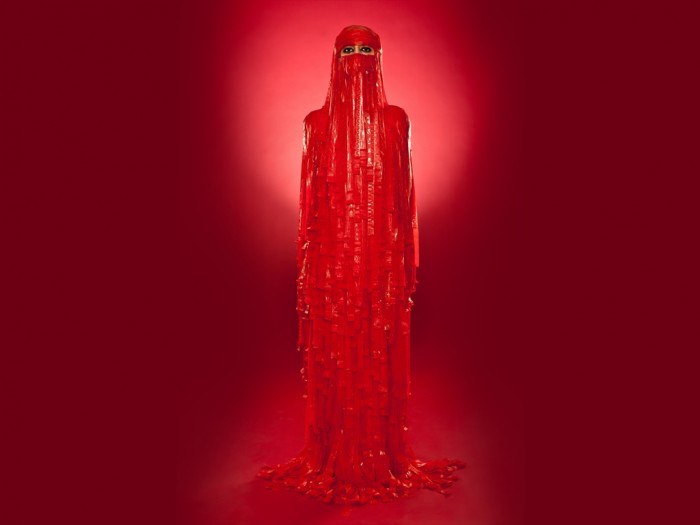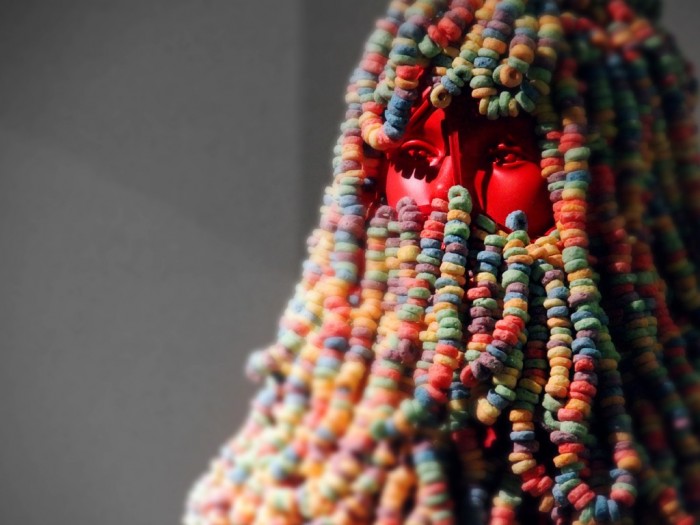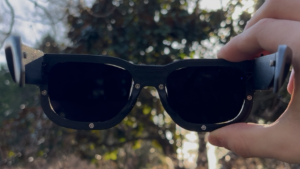There’s an alternative conversation to the current discourse around the controversies of a woman wearing a burka. It’s one where a burka is an object of beauty, not a symbol of violence. Western media has vilified the burka into a sign of oppression and coercion, while in the east; faithful followers have heralded it a powerful display of piety. This conversation has been lost in translation and adapted to religion over centuries. Modern-day interpretations of the burka have replaced the original reason and cultural significance for the garment.
Afghan-born artist, designer, photographer and filmmaker, Behnaz Babazadeh, now living in Washington D.C. supports this alternative conversation with her latest body of work entitled: Burkaphilia.
In Burkaphilia, Babazadeh shows photographs of herself wearing burkas made from a variety of American sweets reminiscent of her childhood. She takes the innocence of sweets and juxtaposes it with the way this garment is perceived. She also explores the lust and sexual fetishes men might experience through the mystery of the woman behind the burka.
In her 2015 TedX talk, she recalls a memory of going to school via train. In the hubbub of the station, she could feel the silent stares piercing through her veil. Arriving at school, the security guard denied her entry until her burka was removed. She felt embarrassed, defeated and violated. She had worn the burka to celebrate her cultural heritage and not as an act of protest.
Now, many years later Babazadeh taps into the ironies associated with the burka. What was once a covering for protection against the harsh climates of the Middle East and veil to display prestige and nobility has become a safety concern for residents of the global village.
Babazadeh wants to re-open the lost conversation and re-instate the burka as a symbol of beauty and independence.








